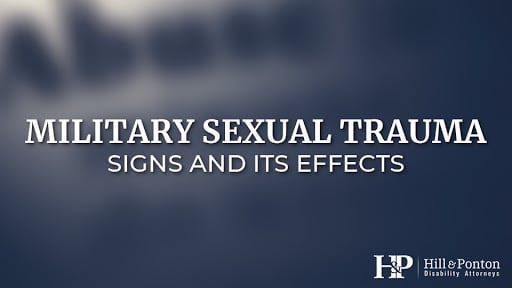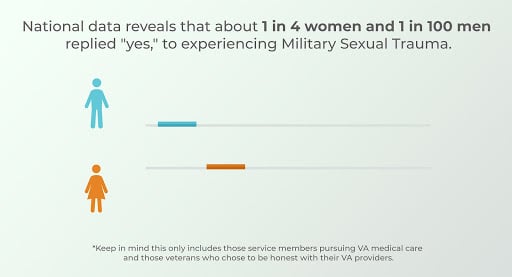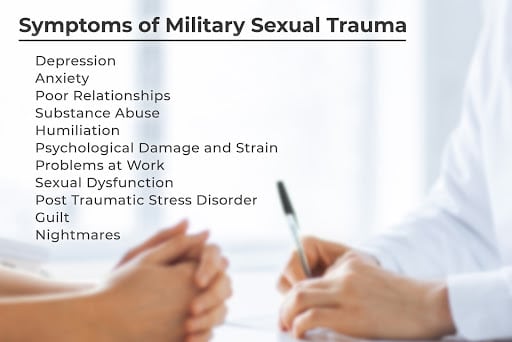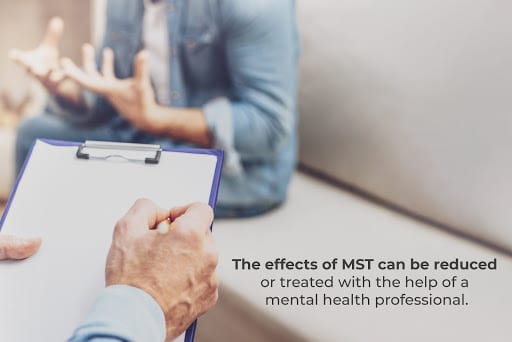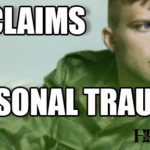Prevalence of Military Sexual Trauma
Although military sexual trauma is a very traumatic experience, there is no reason to feel ashamed or embarrassed that this has happened to you. MST is, unfortunately, much more common than you may think.
National data reveals that about 1 in 4 women and 1 in 100 men replied “yes,” to experiencing Military Sexual Trauma when they were screened by their VA provider. Keep in mind this only includes those service members pursuing VA medical care and those veterans who chose to be honest with their VA providers. I can guarantee that there are many veterans unaccounted for that experienced the same. It is also important to note that by percentage women are at a greater risk of experiencing MST, but nearly 40% of veterans who disclose MST to their VA provider are actually men.
Examples of Military Sexual Trauma
Many veterans do not file a claim for military sexual trauma because they are unsure if their traumatic experience qualifies as MST. Although rape is the most straight-forward form of MST, there are other experiences that may qualify for VA benefits due to MST. Military Sexual Trauma is the act of being pressured or coerced into sexual activities, being physically forced to have sexual activities, threatening and unwanted sexual advances, and more:
- Pressured into sexual activities (for example, with threats of negative consequences for refusing to be sexually cooperative or with implied better treatment in exchange for sex)
- Unable to consent to sexual activities (for example, when intoxicated)
- Physically forced into sexual activities
Other experiences that fall into the category of MST include:
- Unwanted sexual touching or grabbing
- Threatening, offensive remarks about a person’s body or sexual activities
- Unwelcome sexual advances
Military Sexual Trauma Signs and Symptoms
Responses to MST are different in every individual. For some service members and veterans, the consequences occur immediately; for others, the traumatic event gets buried straightaway and then surfaces years later. Regardless of when these symptoms appear, the most common signs of MST include:
- Depression (persistent feelings of sadness and loss of interest)
- Anxiety (a feeling of worry, nervousness, or unease)
- Poor relationships (such as an overall distrust of men or women)
- Substance abuse (such as using drugs or alcohol)
- Humiliation (feeling ashamed or embarrassed and therefore losing self-respect)
- Psychological damage and strain (ongoing, relentless stress)
- Problems at work (difficulty focusing and/or problems with coworkers)
- Sexual dysfunction (low libido and/or erectile dysfunction)
- Post Traumatic Stress Disorder (diagnosable by a mental health professional)
- Guilt (self-blame)
- Nightmares (the replaying of the traumatic event in dreams)
Effects of MST
Along with the above symptoms, there are long-lasting effects of MST on an individual. These effects include:
- Issues with sleep (sleeping too much or too little)
- Disturbing memories (flashbacks and intrusive thoughts of the incident)
- Difficulty feeling safe (hypervigilance and unease around others)
- Feeling isolated (closing yourself off from others)
- Problems with strong emotions (such as irritability or anger)
- Physical health problems (chronic pain, weight/eating problems, or gastrointestinal problems)
These effects can be reduced or treated with the help of a mental health professional, including the utilization of therapy and/or mental health medication. If you are experiencing any of the above symptoms, I recommend speaking with your doctor or a mental health professional in order to create a treatment plan that best works for you. Although the event itself cannot be erased, the effects of the event can be diminished and you can experience a higher quality of life than you may believe.
